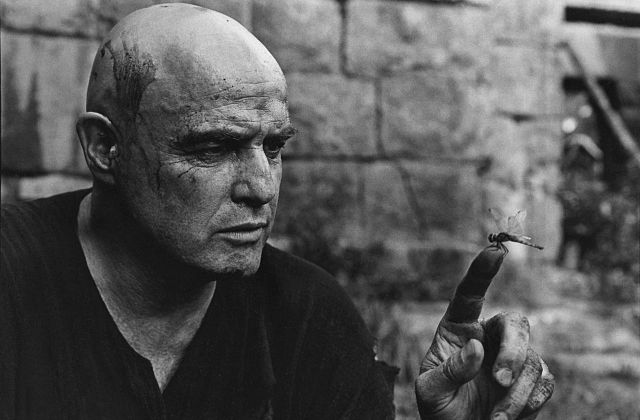Cinerama organized yet another one of their impressive 70mm Film Festivals. This year the films include "2001: A Space Odyssey", "The Sound of Music", "Lawrence of Arabia", "Interstellar", "Aliens", "Patton". (Full listing is at the previous link.)
Two films that I've had a chance to watch were "Apocalypse Now" and "The Master". The latter is a film about a charismatic founder of a cult and I'll be puzzling over it for months to come, but seeds planted by "Apocalypse Now" have already borne fruit.
It was something like fifteen years since I've seen "Apocalypse Now", way back in 2000 or so. I didn't understand it at the time and promptly forgot about the movie. Sure, I'd "seen it", it's a classic, who hasn't? But I couldn't give you much more than the elevator pitch for the film. Didn't really pay attention, not to the important stuff.
This time, I actually paid attention.

Maybe my interpretation of the movie is incorrect, but this is the mental image I came away with: Captain Willard goes on a mission to "terminate" Colonel Kurtz, and along the way observes Vietnam through the eyes of a US soldier. He sees death, horror, men who have lost their way, soldiers with no purpose, a war being waged for terrible reasons. Willard goes on the same journey that Kurtz had undergone, and is similarly transformed by it. Willard does not go insane, but it's certainly a possibility. The narration is then of Willard explaining Kurtz' story - how the old man had come to be a demi-god in control of an army in Cambodia - to Kurtz' son. The Colonel's demise thus does not come as a surprise, but is rather the inevitable outcome of seeing the madness of the war. At least, this is how I understood it.
So what is this nonsense about "Apocalypse Now 2"?
Well, I was just thinking about Willard's trip through Vietnam and the sights he'd seen, the sheer madness that overcame those American soldiers, the very literal hell that was the Vietnam war. And then considered a parallel journey that one could undertake through America now. A modern-day Willard would follow Kurtz through the bloody streets of Chicago, will look upon the world through the muddy waters of Flint, MI, witness the establishment of the surveillance state at the hands of the NSA, narrate a biting critique of our criminal justice system, may pass his way through Indiana or Oklahoma to observe the personhood status we've given to corporations, and will finally end his trip with a political debate between a corporate whore and a narcissistic blowhard, the words "The horror! The horror!" escaping his lips.
America in 2016 is clearly not the same hell that Coppola conveyed in his masterpiece, but neither is it an idyllic paradise. We're a third-world country with an over-funded military and a corporate ruling class. The film will be a documentary of the us-vs-them struggle that is tearing this country apart and the main characters will be driven mad before our eyes. Then they'll sit down in a bar and will watch the news over a couple of Bud Lights.
That last part might get put in at the last moment, to give the film a happier ending.
